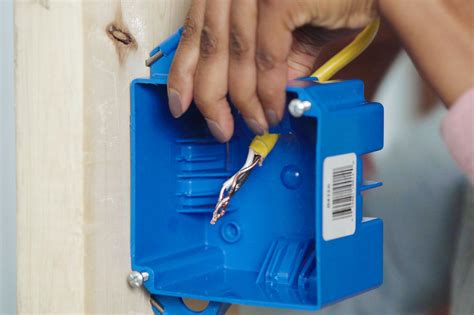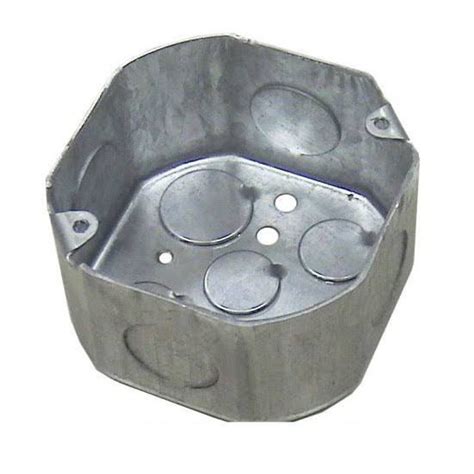difference between plastic and metal electrical boxes BX is a name for metal-armored electrical cable for indoor or outdoor use. What . CNC Precision Machining Manufacturers, Factory, Suppliers From China, We can easily offer you by far the most aggressive prices and good quality, because we've been much additional Specialist! So please will not hesitate to call us.
0 · wiring plastic electrical box knockouts
1 · the metal junction box
2 · plastic outlet box vs metal
3 · plastic or metal electrical boxes
4 · plastic junction boxes electrical lowe's
5 · metal vs plastic gang box
6 · grounding metal electrical boxes
7 · are metal electrical boxes safe
Struggling to source CNC parts? Explore THECNCSOURCE.COM for easy access to top brands like Renishaw, Blum, Heidenhain, Acu-Rite, Zebra Skimmers and more.
While electrical boxes have many variations, they all fall into one of two categories: plastic boxes or metal boxes. Sometimes, the choice is clear-cut and obvious, mainly for grounding. Other times, it's a matter of personal preference. Generally, do-it-yourselfers prefer .NM wire: NM (non-metallic) wire is electrical wire with an outermost sheathing made .BX is a name for metal-armored electrical cable for indoor or outdoor use. What .Using Plastic Push-In Connectors . The newcomer on the block is the plastic .
Plastic device boxes offer several advantages over metallic device boxes. For instance, unlike metal boxes, plastic electrical boxes do not conduct electricity upon contact with a live wire, eliminating the need for grounding. Plastic boxes are lightweight, easy to work with, and suitable for non-metallic cables. They are a popular choice for DIYers. On the other hand, .
The biggest difference between metal and plastic electrical boxes is their durability and strength. Metal boxes are stronger and more durable, making them ideal for heavy-duty applications, while plastic boxes are more lightweight and . Discover the differences between plastic and metal electrical enclosures. Learn which material best suits your needs based on durability, cost, and environmental factors.
wiring plastic electrical box knockouts

Plastic boxes are the most common choice for residential wiring projects. They are lightweight, easy to install, and less expensive than metal options. Plastic boxes are also non-conductive, reducing the risk of electrical . While electrical boxes have many variations, they all fall into one of two categories: plastic boxes or metal boxes. Sometimes, the choice is clear-cut and obvious, mainly for grounding. Other times, it's a matter of personal preference. Generally, do-it-yourselfers prefer plastic electrical boxes, and electricians use both metal and plastic boxes.There are a few key differences between metal and plastic electrical boxes. Metal boxes are generally more durable than plastic boxes, and they offer better protection against fire. Metal boxes also tend to be more expensive than plastic boxes.
Plastic device boxes offer several advantages over metallic device boxes. For instance, unlike metal boxes, plastic electrical boxes do not conduct electricity upon contact with a live wire, eliminating the need for grounding.
Plastic boxes are lightweight, easy to work with, and suitable for non-metallic cables. They are a popular choice for DIYers. On the other hand, metal boxes offer unmatched strength, durability, and compatibility with metal-sheathed cables or conduits, making them ideal for specific applications.The biggest difference between metal and plastic electrical boxes is their durability and strength. Metal boxes are stronger and more durable, making them ideal for heavy-duty applications, while plastic boxes are more lightweight and flexible, making them an excellent choice for do-it . Discover the differences between plastic and metal electrical enclosures. Learn which material best suits your needs based on durability, cost, and environmental factors. Plastic boxes are the most common choice for residential wiring projects. They are lightweight, easy to install, and less expensive than metal options. Plastic boxes are also non-conductive, reducing the risk of electrical shock, and they’re compatible with .
Unlike metal boxes, a plastic electrical box does not conduct electricity when touched by a live wire, and these non-conductive boxes need not be grounded. The plastic electrical box is also lightweight and easier to install as they come with pre-integrated mounting nails or clamps. That’s why it’s essential to understand the two main types of junction boxes: plastic and metal. Each has its advantages. Plastic boxes are lightweight and easy to install, perfect for most residential homes. On the other hand, metal boxes are .Choosing between metal boxes and plastic boxes for electrical use depends on several factors, including the specific application, environment, and personal preferences. Metal boxes offer durability, fire resistance, and effective grounding, but they can be heavier, more conductive, and prone to corrosion.
While electrical boxes have many variations, they all fall into one of two categories: plastic boxes or metal boxes. Sometimes, the choice is clear-cut and obvious, mainly for grounding. Other times, it's a matter of personal preference. Generally, do-it-yourselfers prefer plastic electrical boxes, and electricians use both metal and plastic boxes.There are a few key differences between metal and plastic electrical boxes. Metal boxes are generally more durable than plastic boxes, and they offer better protection against fire. Metal boxes also tend to be more expensive than plastic boxes. Plastic device boxes offer several advantages over metallic device boxes. For instance, unlike metal boxes, plastic electrical boxes do not conduct electricity upon contact with a live wire, eliminating the need for grounding.
Plastic boxes are lightweight, easy to work with, and suitable for non-metallic cables. They are a popular choice for DIYers. On the other hand, metal boxes offer unmatched strength, durability, and compatibility with metal-sheathed cables or conduits, making them ideal for specific applications.
The biggest difference between metal and plastic electrical boxes is their durability and strength. Metal boxes are stronger and more durable, making them ideal for heavy-duty applications, while plastic boxes are more lightweight and flexible, making them an excellent choice for do-it .
Discover the differences between plastic and metal electrical enclosures. Learn which material best suits your needs based on durability, cost, and environmental factors. Plastic boxes are the most common choice for residential wiring projects. They are lightweight, easy to install, and less expensive than metal options. Plastic boxes are also non-conductive, reducing the risk of electrical shock, and they’re compatible with . Unlike metal boxes, a plastic electrical box does not conduct electricity when touched by a live wire, and these non-conductive boxes need not be grounded. The plastic electrical box is also lightweight and easier to install as they come with pre-integrated mounting nails or clamps.
That’s why it’s essential to understand the two main types of junction boxes: plastic and metal. Each has its advantages. Plastic boxes are lightweight and easy to install, perfect for most residential homes. On the other hand, metal boxes are .
the metal junction box

fresa cnc usada
plastic outlet box vs metal
Pen making and wood turning supplies including, bottle stoppers, duck call, ring making, pen making and bowl making and turning supplies tools.
difference between plastic and metal electrical boxes|plastic or metal electrical boxes